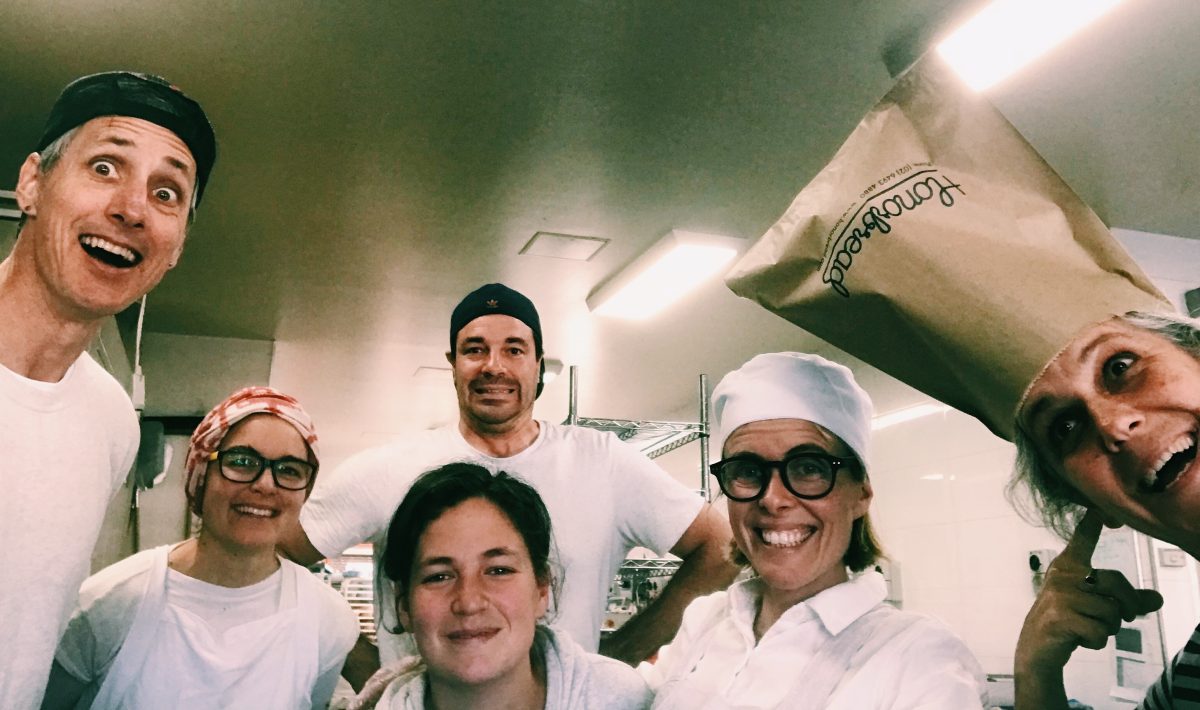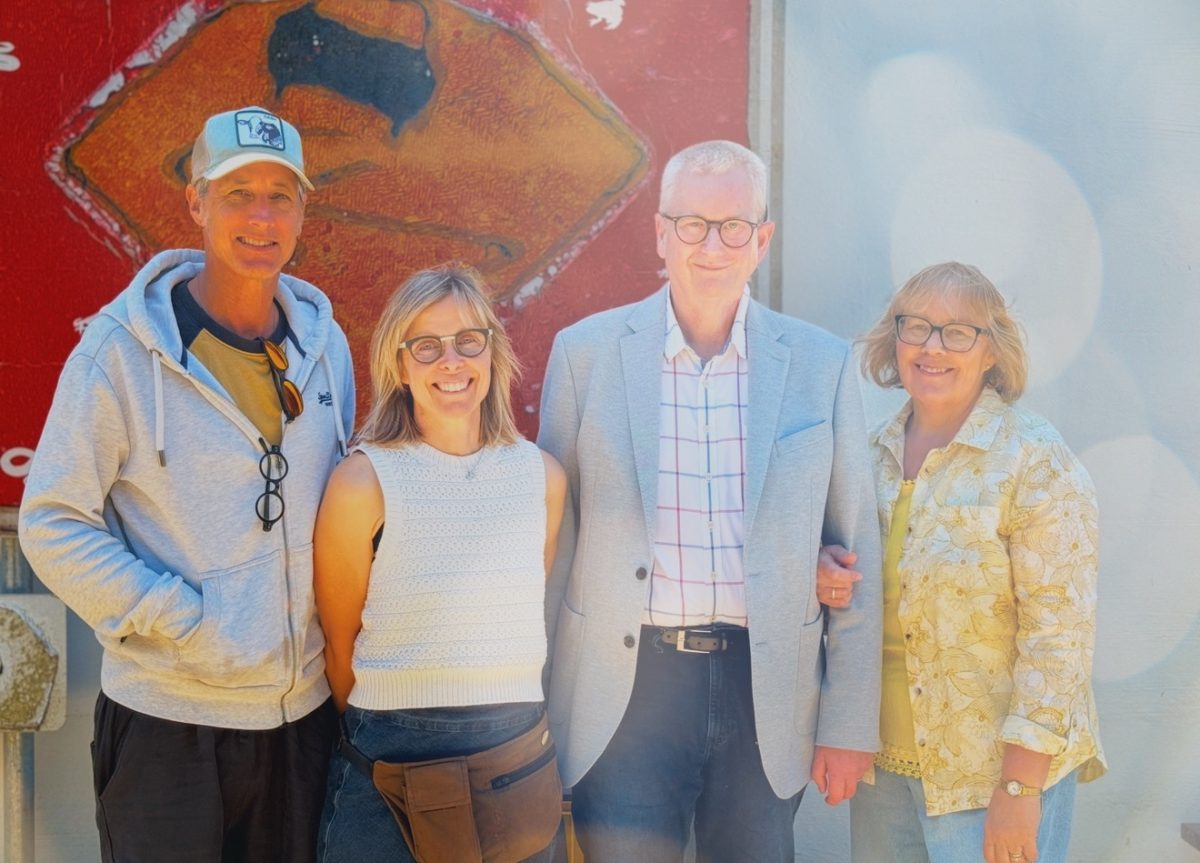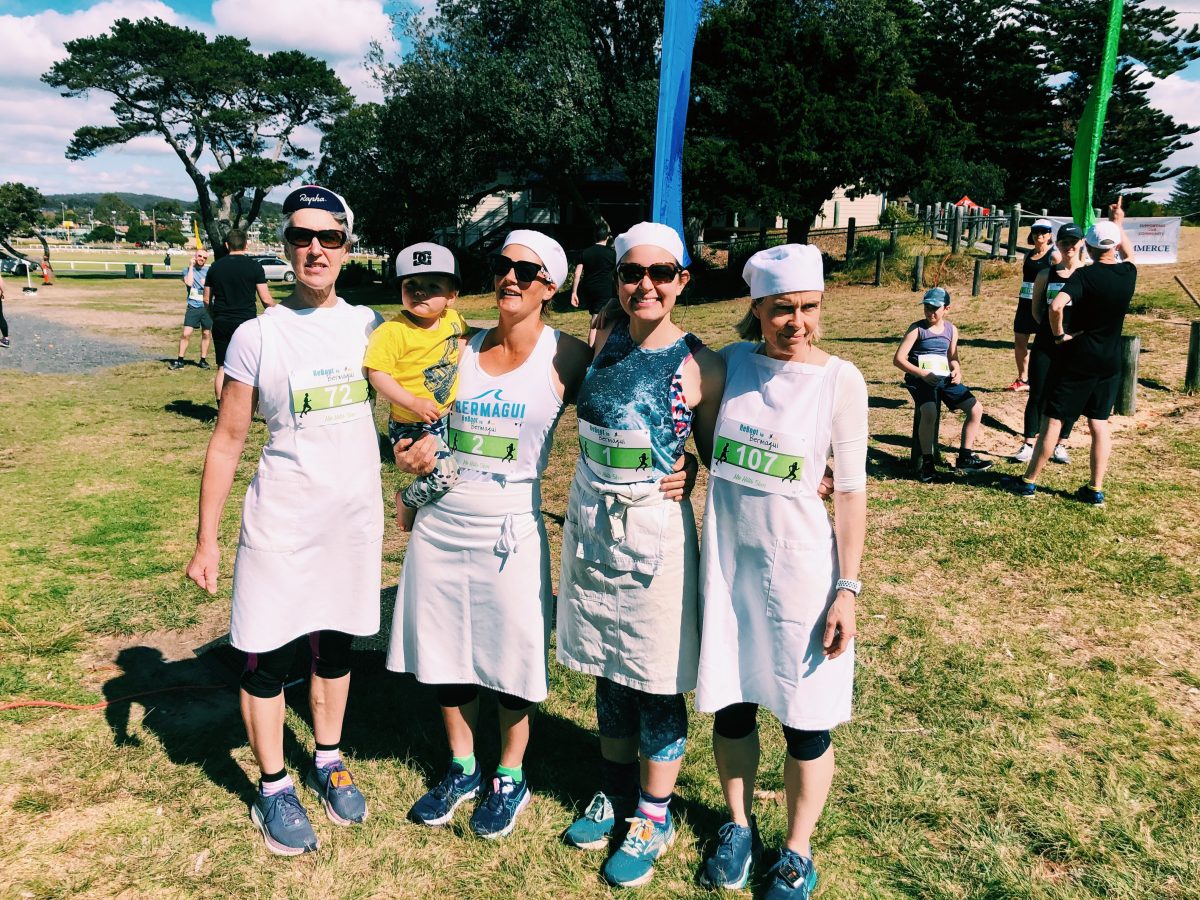
Honorbread’s Tim and Honor Northam (left and second from right) are looking at different models to run their business more equitably with employees. Photos: Supplied.
Honor Northam has been running the successful Bermagui business Honorbread for almost 10 years.
She is proud of what she has created with her husband, Tim Northam, and its 50 to 60 employees. She does not want that to be lost when the time comes to sell.
Mrs Northam has been thinking about succession and different business models that enable owners to run their enterprises more equitably with their employees.
After exploring ways of doing business differently and protecting the legacy of Honorbread, she has been concentrating on Employee Ownership Trusts (EOT) for a year.
Mrs Northam is on a mission to raise awareness of EOTs among business owners, accountants, lawyers and, most importantly, the ATO to make EOTs feasible and economically viable for traders.
Businesses large and small can create an EOT. The beneficiaries are current and future employees. At the end of each financial year, the employees receive a part of the annual profit.
In the UK, 51 per cent of a business’s value must be put in the trust. It can be up to 100 per cent.
When the Northam family decides to leave the business, they would remain on the EOT board, which includes community representation, until there is someone suitable to replace them.
“You write a constitution that speaks to the values you hold,” Mrs Northam said. “We would be open to hearing people’s grievances, ideas for positive change, acknowledging where we have fallen short, and where the business is going. It would have a system of impartial review.”

Tim and Honor Northam with Graham Nuttall OBE and his wife in Bermagui. Mr Nuttall was instrumental in creating the UK’s employee ownership policy framework.
It has been a journey of several years for Mrs Northam. She has watched documentaries, looked at what other countries are doing and met Australian and British pioneers in EOTs to address what she sees as fundamental social and economic flaws.
“How can we incentivise and reward employees in a way they don’t have to buy into the business and that has longevity?” Mrs Northam said. “How can we ensure the business does not drift from good, fair business with integrity and its original principles?”
Mrs Northam said EOTs worked particularly well in regional areas with smaller communities where perhaps people have more homogenous values, or the social impact is more visible.
Another appeal of EOTs for her is they keep money within the community.
“If someone from Sydney or Canberra bought this business, then the money would go to places that are already well resourced,” she said.
She is worried that small, beautiful places like Bermagui could be gentrified by wealthy outsiders.

Honorbread staff with Honor Northam (far right) at ReBoot Bermagui.
One of the biggest barriers to EOTs in Australia is the absence of ATO guidelines. Most small-business owners cannot afford help from accountants and lawyers. Their first port of call is the ATO.
There is a negative circle of the ATO saying there is not enough interest in EOTs in Australia for it to provide guidelines, yet people cannot establish EOTs without any guidelines.
Mrs Northam said EOTs were big in the UK. Every day a business in the UK transitions to the model and lawyers can be fined if they do not mention EOTs as a positive model when business owners discuss selling or succession.
She said people usually only started thinking about these things when they got older, their health was failing, or they were burnt out.
“People need to start thinking about this when they open the business,” she said. “It needs to be in business studies, in MBAs, and accountancy courses. This needs to be part of a conversation.”
Mrs Northam has spoken to Member for Bega Dr Michael Holland and Member for Eden-Monaro Kristy McBain about the barriers to EOTs in Australia.
“The government, the ATO, aren’t thinking about how can we do this differently, how can we solve some of our social and economic problems by making some fundamental changes,” Mrs Northam said.
She said growing numbers of people were asking why the ATO was not helping business owners by providing EOT guidelines.
“They will keep on asking until there are answers.”
It leaves Mrs Northam frustrated that she and her husband have given up much of their lives and many hours with their family and put their health second to a business that gives to employees and the community, yet that business might be bought by someone for a price.
“I want the business to be a legacy to everyone’s hard work and create something that others can use as an example,” she said.







